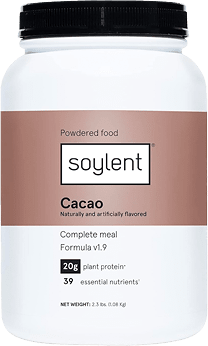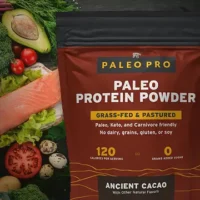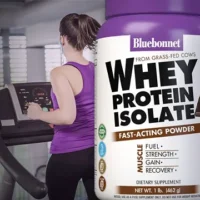Knowledge BaseYou're Questions Answered
Is soy protein powder bad for you?
Soy protein powder, like any food, can be consumed in moderation as part of a balanced diet. However, some people may have concerns about consuming soy products due to their potential health effects.
Soy contains phytoestrogens, which are plant compounds with estrogen-like effects. Some studies have suggested that consuming large amounts of soy may affect hormone levels and potentially increase the risk of certain health problems.
However, other studies have found that moderate consumption of soy products is safe and may have health benefits, such as reducing the risk of heart disease and certain types of cancer.
It's important to note that not all soy protein powders are created equal and some may contain added ingredients that can affect their safety and health benefits.
Things to consider...
- Soy Protein Powder is high in phytic acid
Phytic acid is a naturally occurring substance that binds to certain minerals and prevents these from being absorbed by the body. This may be useful for some heavy metals, but it also binds to calcium, niacin, iron, magnesium, and zinc which the body uses. A very soy-rich diet throughout the day may prevent your body from absorbing these much-needed minerals. - Soy protein powder contains an anti-nutrient
Soy includes an anti-nutrient that inhibits the digesting enzyme called trypsin. This slows protein digestion and makes soy less bioavailable to the body. - Soy protein powder contains isoflavones
Isoflavones like phytoestrogen in soy mimic the hormone estrogen in your body. This is an important hormone in women, and some have suggested that including substantial amounts of soy in your diet could upset testosterone levels in men. However, there is no research currently to confirm this. Experts have however recommended limiting soy intake during pregnancy because of the importance of the hormone for a baby's development.
As with any supplement, the overuse of the product presents the greatest danger. You should ensure you use a product as directed on the packaging. It's also a good idea to speak to a healthcare provider, especially if you have any health concerns.
Related Questions
Protein vs Protein

Your Answer
We are a participant in the Amazon Services LLC Associates Program, an affiliate advertising program designed to provide a means for us to earn fees by linking to Amazon.com and affiliated sites.



